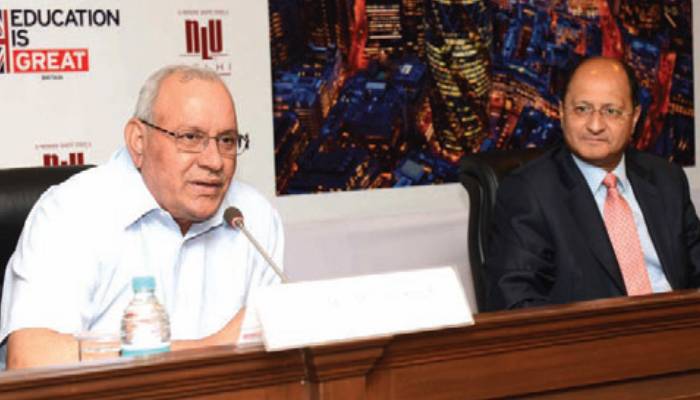
or

With the British Law Minister Mr.ShaileshVara’s visit to India last month, various talks happened over UK and India’salreadywellestablished, broad-ranging and expanding partnership on education. The minister emphasized on encouraging greater student mobility and exchanges between our countries. He discussed about UK’s global reputation for excellence in the field of education and skills, with 4 of the world’s top 10 universities, including University of Cambridge, University College London, Imperial College London and University of Oxford, and is home to 30 of the world’s top 200 universities.
Mr.Vara shared that the UK offers a high quality education that is recognised by employers worldwide and offers a passport to global success.Studying in the UK can be a multicultural experience, with 330,000 foreign students from over 200 countries, including around 25,000 from India.
The minister suggested that genuine students with a place at a genuine university will get a visa. About 84% of student visa applicants were successful in 2013 alone. Indian students can stay on to work after study in graduate level employment (£20,000) for three years with possible extension for a further three.
Pic caption: United Kingdom’s Parliamentary Under-Secretary of State and Minister for the Courts and Legal Aid at the Ministry of Justice, ShaileshVara MP &Dr.Ranbir Singh, Vice Chancellor, NLU Delhi addressing the Press Meet
Up to 700 scholarships are offered to Indians by UK institutions each year. It was interesting to know that the UK is expanding their flagship Chevening Scholarship programme, now in its 30th year, making it one of the largest in the world. The year 2014-15 had a £1mincrease on the previous year’s funding, raising it from £600k to £1.6m. Further in 2015-16, a further increase of £800k will take India’s Chevening budget to four times what it is now, making it a total of £2.4m and a world class education for over 150 Indian scholars.
The minister also addressed various myths in place including the difficulties to get UK student visa, lack of employability among Indians after their studies, and higher education in the UK being prohibitively expensive. He assured that legitimate students will get their visa and can be confident they will study at a high quality educational institution.
Mr.Vara also said that Indian graduates can work in graduate level jobs for three years with the chance to extend this for a further three years. This is four years longer than under the previous rule for post-study work. “Indians tend to graduate with high value skills – engineering, medicine, business. Such aspirational people should be working in areas where they can achieve their potential. A visa has been introduced for graduate entrepreneurs which allows graduates who have worldclass innovative ideas to stay in the UK to develop their ideas.” said Mr.ShaileshVara MP, and the United Kingdom’s Parliamentary Under-Secretary of State and Minister for the Courts and Legal Aid at the Ministry of Justice.
Keen to encourage greater mobility and exchanges of students between the UK and India, the minister suggested UK degrees are normally shorter than in other countries: three year UG, one year Masters. And the fees are generally less in the UK than in the US or Australia. UK-educated international graduates achieve markedly higher average salaries in their home country: those returning to India achieve an average starting salary of £13,214 as opposed to £4,394.
The LW Bureau is a seasoned mix of legal correspondents, authors and analysts who bring together a very well researched set of articles for your mighty readership. These articles are not necessarily the views of the Bureau itself but prove to be thought provoking and lead to discussions amongst all of us. Have an interesting read through.

Lex Witness Bureau

Lex Witness Bureau

For over 10 years, since its inception in 2009 as a monthly, Lex Witness has become India’s most credible platform for the legal luminaries to opine, comment and share their views. more...
Connect Us:


The Grand Masters - A Corporate Counsel Legal Best Practices Summit Series
www.grandmasters.in | 8 Years & Counting
The Real Estate & Construction Legal Summit
www.rcls.in | 8 Years & Counting
The Information Technology Legal Summit
www.itlegalsummit.com | 8 Years & Counting
The Banking & Finance Legal Summit
www.bfls.in | 8 Years & Counting
The Media, Advertising and Entertainment Legal Summit
www.maels.in | 8 Years & Counting
The Pharma Legal & Compliance Summit
www.plcs.co.in | 8 Years & Counting
We at Lex Witness strategically assist firms in reaching out to the relevant audience sets through various knowledge sharing initiatives. Here are some more info decks for you to know us better.
Copyright © 2020 Lex Witness - India's 1st Magazine on Legal & Corporate Affairs Rights of Admission Reserved